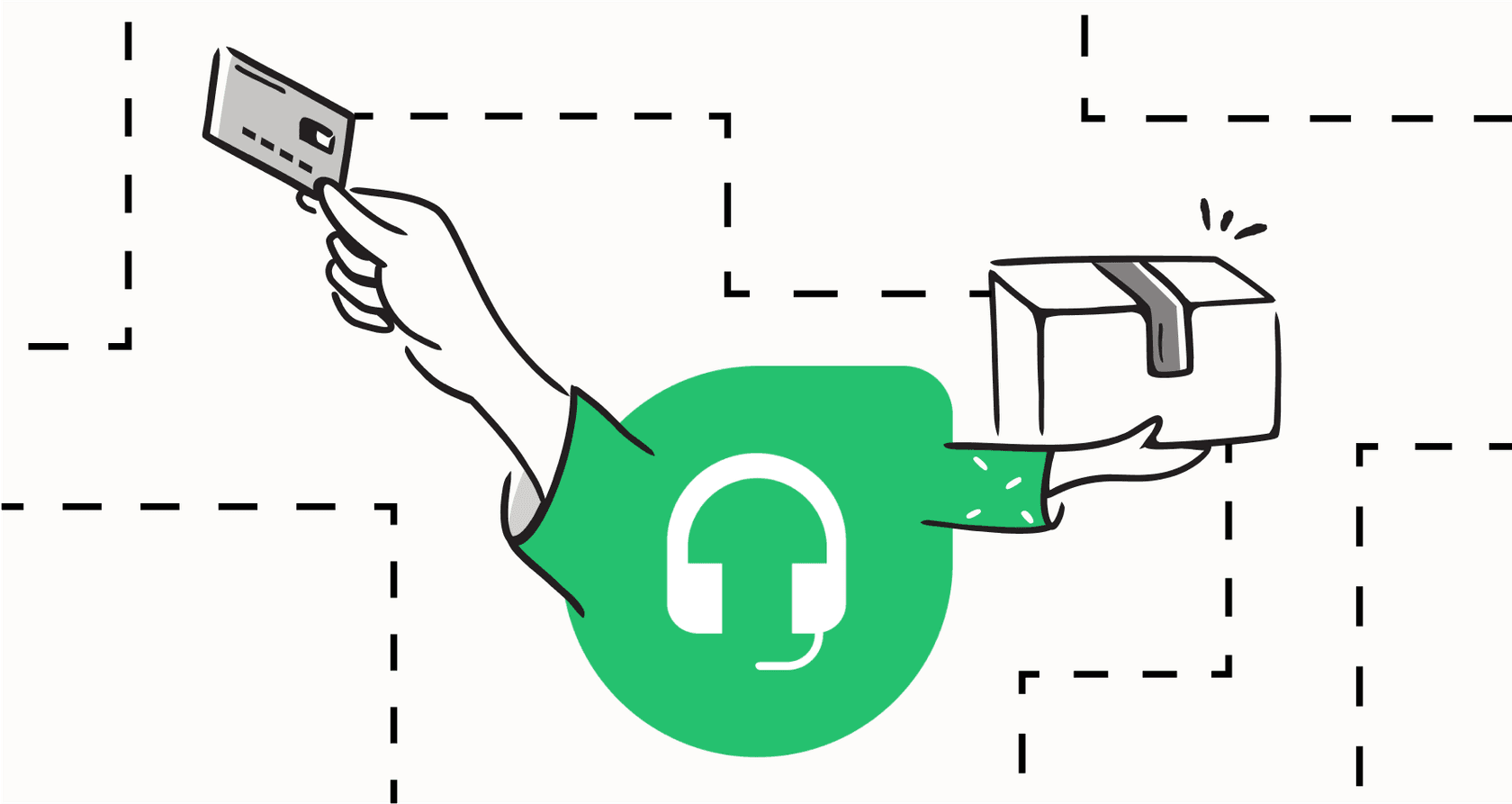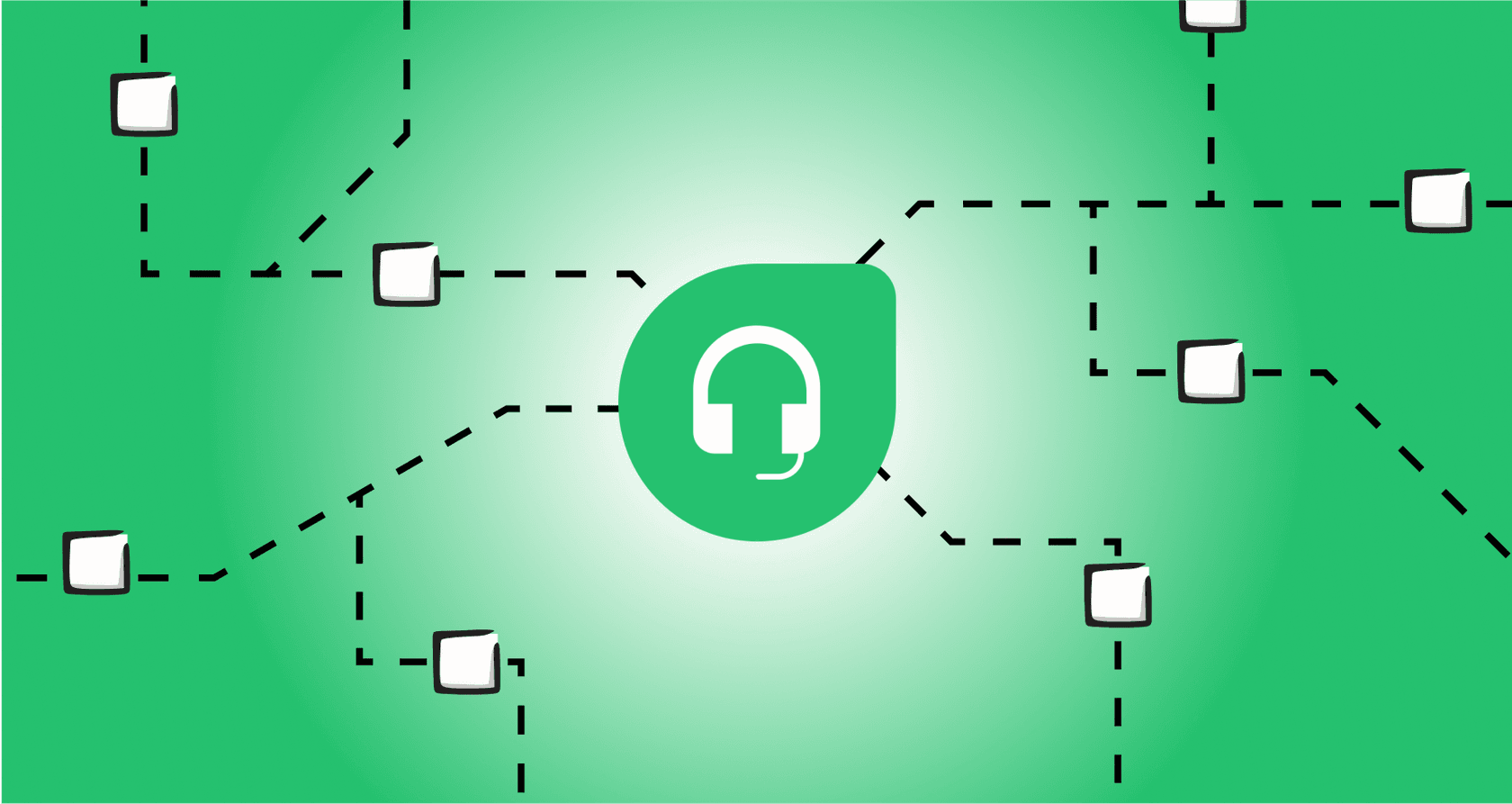Freshdesk HubSpot: The complete 2026 integration and comparison guide

Stevia Putri

Katelin Teen
Last edited January 16, 2026
Expert Verified

Picking a new helpdesk or CRM is a big deal. It’s not just about buying software; it’s a decision that really shapes how you talk to your customers. If you’re reading this, you’re probably looking at two of the biggest, most reliable names out there: Freshdesk and HubSpot. On one hand, you have Freshdesk, a tool built from the ground up for customer support. On the other, there’s HubSpot, the impressive all-in-one platform that brings sales, marketing, and service under one roof.
A lot of teams get the best of both worlds by using them together. The goal is a smooth flow of information from support agents to sales reps and back again. While connecting two different platforms can sometimes require a bit of setup to ensure data syncs exactly how you want it, the result is a much more informed team.
In this guide, we’ll walk through the features of Freshdesk and HubSpot, look at how they can integrate, and show you how to bring all your customer knowledge together effectively.
What is Freshdesk?
Freshdesk is a cloud-based customer support platform that helps businesses manage their customer conversations. It is a specialized helpdesk designed to make support agents’ lives easier and help them manage tickets efficiently.
It’s got a solid ticketing system, lets you talk to customers across email, chat, phone, and social media, and includes a self-service knowledge base. Freshdesk has also built its own AI, called Freddy AI, to handle common questions and assist human agents. It’s a popular choice for teams that want a dedicated tool for their customer service.
What is HubSpot Service Hub?
HubSpot Service Hub is the powerful customer service component of HubSpot’s comprehensive CRM platform. HubSpot's main advantage is that it is a world-class helpdesk that connects seamlessly with HubSpot’s industry-leading sales and marketing tools.
This setup gives you a single, unified view of a customer’s entire journey, from the first ad they clicked to their most recent support ticket. Service Hub provides ticketing, a shared inbox, customer surveys, a knowledge base, and its own advanced AI features. It’s built for businesses that want a mature, reliable platform with one smooth experience across every team that talks to customers.
Core features: A head-to-head Freshdesk HubSpot comparison
While both platforms cover the basics like ticketing and knowledge bases, they offer different advantages. Here’s a look at how they compare in the areas that matter most.
Ticketing and agent workflow
Freshdesk is built around a specialized ticket interface. Its whole design is focused on helping agents manage their queues, with features for routing tickets and setting priorities right out of the box. For a support team that needs a dedicated ticketing environment, it is a very capable tool.
HubSpot’s ticketing is equally powerful and operates within its sophisticated CRM. The significant advantage here is that every ticket is automatically linked to a detailed customer profile. This means your agents can see a customer's entire history, from sales calls to marketing emails, right alongside their support request. This context is invaluable for providing personalized, high-quality service. HubSpot provides a robust set of features that cover the needs of modern support teams while keeping them connected to the rest of the business.
Knowledge base and self-service
Both tools let you build a knowledge base so customers can help themselves. Freshdesk gives you a simple way to create and organize help articles. HubSpot’s knowledge base is also excellent, with the added benefit of being tied to its enterprise-grade reporting tools. This lets you see exactly how your articles are performing and how they contribute to your overall customer success strategy.
The integration landscape
It is common for businesses to use HubSpot as their main CRM and then plug Freshdesk in for support. Integrations are available, and they allow these two powerful tools to share data.
When setting up an integration, there are a few things to keep in mind:
-
Data Sync Depth: Depending on the connector you use, you'll want to ensure that full conversation history is synced so that sales and marketing teams have the full context of support interactions.
-
Sync Direction: Real-time, two-way sync is the goal to ensure both systems are always up to date.
-
App Selection: Be sure to choose the right connector app for your needs. For example, the Hubspot CRM Connector app for Freshdesk is one of many options available in the marketplace to help bridge the two platforms.
A complementary approach is to use a tool that works alongside your existing setup. For instance, eesel AI connects directly to Freshdesk or HubSpot, allowing you to keep your team's preferred workflow. It works within the HubSpot ecosystem to unify knowledge from all your company's sources (like Google Docs and past tickets) to power a single, smart AI layer.
| Feature | Freshdesk | HubSpot Service Hub |
|---|---|---|
| Primary Focus | Dedicated Customer Support | All-in-One CRM Platform |
| Ticketing System | Specialized and agent-focused | Powerful and integrated with CRM records |
| Unified Customer View | Through CRM integration | Native (across sales, marketing, and service) |
| AI Capabilities | Freddy AI (flexible add-on) | Native HubSpot AI tools |
| Integration Approach | Large app marketplace | Deep integration within its own ecosystem |
| Ideal User | Teams needing a dedicated helpdesk | Teams prioritizing a unified source of truth |
Comparing native AI: Freddy AI vs. HubSpot AI
Both Freshdesk and HubSpot are leaders in AI to help automate support. Their native AI systems are built to provide a seamless experience within their respective platforms.
Freshdesk's Freddy AI is great at automating answers and suggesting replies based on data inside Freshdesk. HubSpot's AI is equally capable, leveraging the vast amount of data within the HubSpot CRM to provide intelligent insights. These tools are designed to work perfectly within their own ecosystems.
To further enhance these capabilities, a complementary third-party AI tool can be used. A platform like eesel AI works alongside your chosen system to connect to additional knowledge sources:
-
Past tickets: It can review past conversations to help find proven solutions.
-
Internal documents: It integrates with Google Docs, Confluence, and Notion to provide AI with more context.
-
Help center: It learns from public articles to ensure consistent answers.
Additionally, eesel AI has a simulation mode that lets you test responses before they go live. This type of tool is a great option for teams looking to add another layer of intelligence to their HubSpot or Freshdesk setup.
Pricing explained
Pricing for both platforms is designed to match different team sizes and needs. It’s helpful to look at the overall value each platform brings to your business.
Freshdesk pricing
Freshdesk has a few plans, including a free option for smaller teams. Paid plans are billed per agent, per month.
-
Free ($0): Basic ticketing and knowledge base features.
-
Growth ($15/agent/month): Adds automation and custom ticket views.
-
Pro ($49/agent/month): Includes custom roles and support for multiple products.
-
Enterprise ($79/agent/month): Adds skill-based routing and a sandbox environment.
Freshdesk offers advanced Freddy AI features as flexible add-ons, ensuring teams only pay for the specific AI capabilities they need.
HubSpot Service Hub pricing
HubSpot also starts with a free tier. Its professional plans reflect the immense value of its all-in-one platform nature.
-
Free Tools: Includes ticketing, a shared inbox, and live chat.
-
Starter (Starts at $20/month): Includes 2 paid users and additional automation features.
-
Professional (Starts at $800/month): Includes 5 paid users and adds a full help desk with advanced reporting and surveys.
-
Enterprise (Starts at $3,200/month): Includes 10 paid users and adds custom objects and conversation intelligence.
While HubSpot represents a significant investment, it provides a comprehensive, mature ecosystem. The price includes the powerful CRM, which often saves businesses from having to pay for multiple separate tools.
Choosing the right Freshdesk HubSpot platform for your team
Both Freshdesk and HubSpot are excellent choices. Your decision depends on your team's specific goals.
-
Choose Freshdesk if you are looking for a powerful helpdesk dedicated specifically to support workflows.
-
Choose HubSpot if you want a single, trusted source of truth for the entire customer journey, benefiting from a platform that scales with your whole company.
You can also choose the platform that fits your workflow best and then enhance it with a flexible AI layer.
Unify your Freshdesk HubSpot support with eesel AI
eesel AI integrates with the tools you already use, like Freshdesk and HubSpot, in just minutes. It works alongside these platforms to help handle frontline questions and draft replies, acting as a complementary source of truth. With risk-free simulation and straightforward options, it's a great way to enhance your AI support system in 2026.
Ready to see it in action? Try eesel AI for free.
Frequently asked questions
Common challenges include ensuring full data synchronization where all conversation details sync across platforms. You might also need to manage data flows carefully to ensure real-time updates across both systems using your preferred connector apps.
Freshdesk is a specialized helpdesk built for customer support efficiency. HubSpot Service Hub is a robust part of a larger, enterprise-grade CRM platform, perfectly integrating support with sales and marketing for a comprehensive single customer view. Both are excellent choices depending on whether you need a standalone tool or a unified ecosystem.
Both Freshdesk's Freddy AI and HubSpot's native AI are sophisticated tools designed to automate support and suggest replies. These native solutions focus on learning from data within their respective platforms to provide a seamless user experience.
Freshdesk typically offers plans billed per agent, per month, with a free tier available. HubSpot Service Hub offers a free tier and professional-grade plans that reflect its value as an all-in-one platform, providing a suite of tools that scale with your business.
HubSpot provides a native, unified view of the customer journey across sales, marketing, and service as an all-in-one CRM. Achieving a similar view with Freshdesk typically involves integrating it with a separate CRM, which is a common and effective setup for many businesses.
Choose Freshdesk if you want a dedicated helpdesk specifically for your support team's workflow. Opt for HubSpot if you value a powerful, single source of truth that integrates sales, marketing, and service within one trusted platform.
Yes, you can use third-party AI tools like eesel AI, which works alongside both Freshdesk and HubSpot. These tools complement native AI by unifying knowledge from various company sources to provide an additional layer of support.
Share this post

Article by
Stevia Putri
Stevia Putri is a marketing generalist at eesel AI, where she helps turn powerful AI tools into stories that resonate. She’s driven by curiosity, clarity, and the human side of technology.





